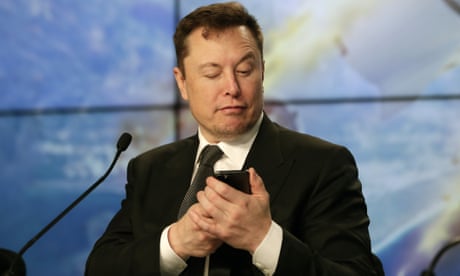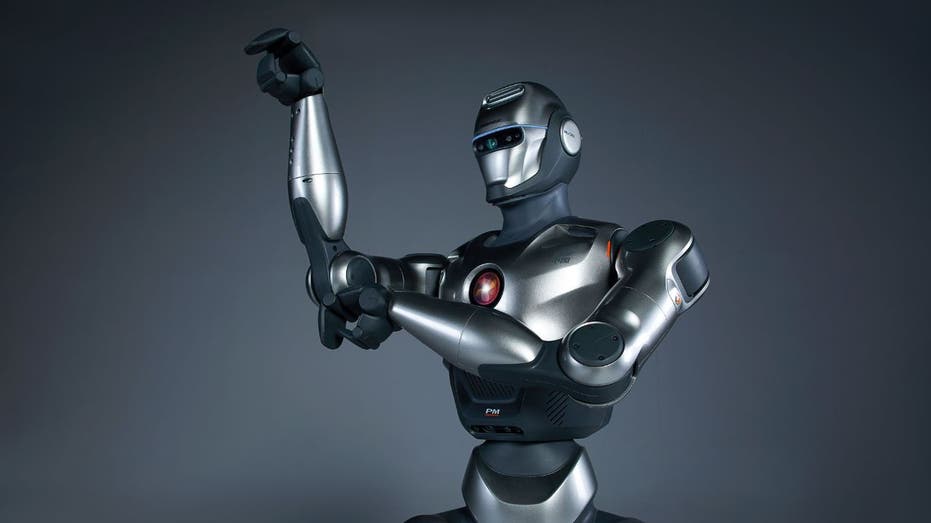- by foxnews
- 10 Mar 2025
What are tech billionaires’ text messages like? Just as petty as ours, it turns out | John Naughton
What are tech billionaires’ text messages like? Just as petty as ours, it turns out | John Naughton
- by theguardian
- 19 Oct 2022
- in technology

How do tech billionaires talk when they think nobody's listening? Usually, the only people who know are the National Security Agency and waiters at Manresa, Silicon Valley's sole three-star Michelin restaurant. But now, courtesy of the court of chancery in the state of Delaware, we lesser mortals have had an opportunity to tune in to recent conversations between Elon Musk (of Tesla, SpaceX and PayPal fame) and some of his buddies.
How come? Well, the court is the arena in which a legal battle is currently being fought between Twitter and Musk. You will recall that in April the Tesla boss offered to buy Twitter outright for $54.20 a share, valuing the company at $43.4bn, which seemed, er, generous at the time. Shortly afterwards, shares in both Twitter and Tesla (the main source of Musk's fortune) tanked, leading to a bad attack of buyer's remorse and a search for a way of backing out of the deal. Twitter was not amused by this and sued in the Delaware court, which is the prime boxing ring for these contests because more than two-thirds of Fortune 500 companies are registered there. The two sides then assembled small armies of high-priced lawyers (I see that Musk's regiment, Messrs Wachtell, Lipton, Rosen & Katz, has nearly 300 lawyers, none of whom comes cheap) and battle commenced.
Most of the documents relevant to the case come varnished with three coats of prime legal verbiage, but one set turned out to be delightfully clear: the text messages exchanged between Musk and his buddies that had to be disclosed during the "discovery" process of the hearing. They come in exhibits H and J of his lawyers' 151-page submission as 35 pages of messages, averaging 21 texts per page. That's roughly 735 instances of pure, unadulterated billionaire-talk.
On the grounds that life is too short to be reading Musk's text messages as well as his interminable Twitter stream, I'm ashamed to say that I had shirked the job of diving into the Delaware trove. But Scott Galloway, a prominent blogger, podcaster and NYU professor, is made of sterner stuff and took the plunge, seeking, as he put it, "a glimpse into the bowels of tech power". And his conclusion from analysing private conversations between "some of the wealthiest and most influential people in the world"? Simply that "bowels" was the correct metaphor.
He also noticed a remarkable amount of deference in the conversations. It's all about who's more wealthy than whom. Since Musk is, pro tem, the wealthiest man in the world, he is deferred to - even by people so rich that they couldn't spend the interest on the interest from their fortunes if they lived to be 200. And because we live in a world where many people - and certainly the mass media - seem to believe that if someone is fabulously rich then s/he must also be fantastically clever, billionaires wind up believing that too. They live in their own reality-distortion field.
"I have never registered a difference in talent or intellect between the wealthy and the uber-wealthy," writes Galloway. "Yet this is the virus that infects the tech elite: conflating talent with luck. Going from millions to hundreds of millions or billions is less a function of incremental intelligence and more a function of timing. Proof? Elon's text record. Any man who can inspire the electrification of the auto industry and land two rockets on barges concurrently deserves the label 'genius'. But his mega-billions flow from a well regulated capital market, a web of enforceable contracts, the diligent labour of thousands of workers and, not least, billions of dollars in government subsidies, including a timely $465m DOE [Department of Energy] loan that enabled Tesla to produce the Model S. So, is Mr Musk a genius or an impressive man whose skills were set against a unique moment and place in time?" The answer: yes to both.
To thrive in a capitalist world, in other words, you need not just ability but also luck and the legal and social institutions that protect your investments. A smattering of shameless hypocrisy can be helpful too. Recently, for example, Musk cancelled at short notice a meeting to answer questions about the Twitter deal. His reason: he was worried about catching Covid from one of Twitter's lawyers. This is the same guy who, in May 2020, refused to keep his Fremont plant closed as the pandemic was raging, under a local closure order. This is the billionaire mindset at full throttle: laws are for little people, not us. Which is why they prefer it when we can't hear their conversations.
Reasons to be cheerfulA Dose of Rational Optimism is the title of Zachary Carter's review in Dissent magazine of Brad DeLong's magisterial new book, Slouching Towards Utopia: An Economic History of the Twentieth Century.
Listen and learnAudiobooks: Every Minute Counts is a fascinating blogpost by Karl Berglund, explaining why audiobooks are different.
Farewell to a philosopherThe Passing of Bruno Latour is a tribute to a great public intellectual from his university, Sciences Po in Paris.
- by foxnews
- descember 09, 2016
Ancient structure used for cult 'rituals' discovered by archaeologists
A Neolithic Timber Circle was discovered by archeologists in Denmark resembling the historical landmark Stonehenge in the U.K. It is open to be viewed by the public.
read more





